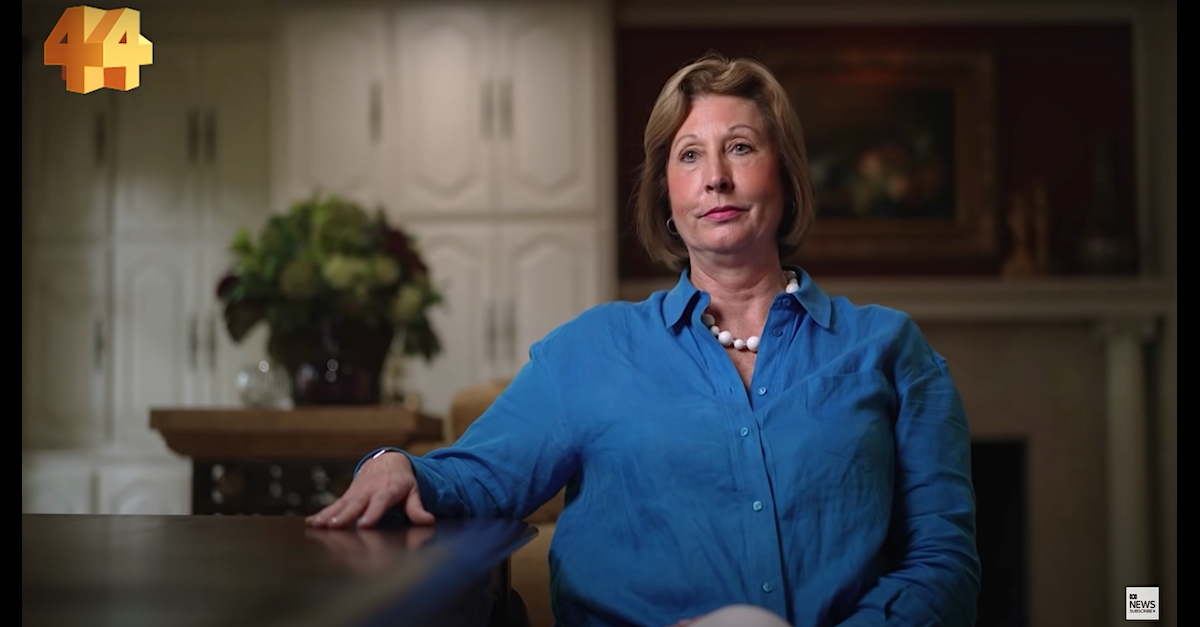
Sidney Powell appears in an August 2021 interview with the Australian Broadcasting Corporation.
The federal judge who presided over the Wisconsin “Kraken” case has rejected Gov. Tony Evers’ (D) request for more than $100,000 in attorney fees, finding that she lacked jurisdiction.
U.S. District Judge Pamela Pepper said that even if she did have jurisdiction, she wouldn’t have awarded fees under 28 U.S.C. §1927.
“The defendant did not file his motion for sanctions until almost four months after this court dismissed the case, two months after the Seventh Circuit issued its decision and over a month after the mandate issued. This court did not reserve jurisdiction. No statute gave the court post-appellate jurisdiction,” the judge explained. “This court does not have jurisdiction to decide the motion and the court must deny it.”
Evers’ failed request for fees stemmed from a case originally filed by La Crosse Republican Party Chairman William Feehan following Donald Trump’s loss in the 2020 election — one of the election lawsuits attorney Sidney Powell likened to the “Kraken.” The federal court docket in the Feehan case lists plaintiffs’ attorneys as Powell, L. Lin Wood, Howard Kleinhendler, Julia Z. Haller, Emily P. Newman, Brandon Johnson, plus local counsel Daniel J. Eastman and Michael D. Dean.
Judge Pepper, a Barack Obama appointee, dismissed the case in December 2020. Several months after that, Evers filed a motion seeking $106,000 in attorneys’ fees, calling the case “a meritless lawsuit built on inscrutable conspiracy theories and improper anonymous affidavits.”
Powell countered by filing a motion asking Judge Pepper to “strike” the Evers’s motion pursuant to Civil Local Rule 7(a).
Ultimately, in addition to denying an award of attorneys’ fees, the judge denied the motion to strike as moot, again citing the court’s lack of jurisdiction.
The judge did remark on the merits at some length, explaining why she didn’t view “sloppy” work product and other issues as sanctionable under 28 U.S.C. §1927:
In an abundance of caution, the court notes that if it did have jurisdiction to rule on the motion, it would not have awarded fees under 28 U.S.C. §1927. The court would be hard-pressed to find that the plaintiff unreasonably and vexatiously “multiplied” the litigation; other than the original complaint, the plaintiff filed only eight affirmative pleadings—the original motion for injunctive relief and supporting brief, the motion to amend the motion for injunctive relief, the amended complaint, the second motion to amend the motion for injunctive relief, the motion for leave to file excess pages, the motion to file separate reply briefs, the motion for a consolidated evidentiary hearing and a motion to restrict. Some of the motions were extremely lengthy and accompanied by voluminous attachments. Others were sloppy. But the court has no basis on which to conclude that the plaintiff was “dilatory” or that he needlessly delayed proceedings; if anything (as the defendant also has argued), the plaintiff was pushing an extremely expedited schedule, which the court and the defendants struggled to accommodate.
Evers’ lawyers had also pushed for the court to sanction the “Kraken” attorneys for what was described as a seemingly “made up” quote. But the judge said she never held that the quote was “fabricated” and would only consider issuing sanctions under her inherent authority for such conduct after hold a hearing.
“This court did not hold that the plaintiff had fabricated a quote—it stated, based on its review of the case the plaintiff had cited, that he appeared to have done so. Even if the court had jurisdiction to decide the sanctions motion, it would not have awarded sanctions—under its inherent authority or any other authority—for this misrepresentation without giving the plaintiff’s counsel an opportunity to explain whether the drafter of the pleading mistakenly cited the wrong case or whether there was some other innocent reason for the apparently ‘fabrication,'” the judge said.
Read the decision below:
[Image via Australian Broadcasting Corporation/YouTube]